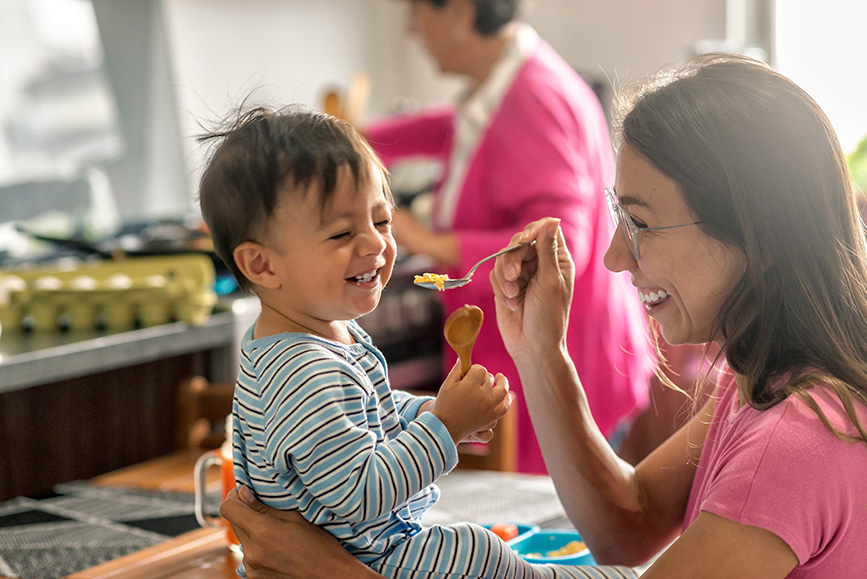Why Is Positivity Key During Your Childs Illness?
Maintaining a positive outlook during your child’s illness is essential. Your positivity impacts their emotional well-being and recovery process, creating a supportive atmosphere. Encouraging words and gestures provide comfort and reassurance on this healing journey. Additionally, boosting their immune system with proper nutrition, hydration, and gentle exercise supports their overall health. Coping with treatment side effects becomes more manageable through mindful distraction and adequate nutrition. Your role in creating a supportive environment and fostering mental resilience is paramount. Stay positive, supportive, and resilient for your child’s well-being.
Key Takeaways
- Positivity boosts emotional well-being and aids in the recovery process.
- It creates a supportive environment that offers comfort and reassurance.
- Positive attitude impacts the immune system, aiding in overall health.
- Coping with treatment side effects is easier with a positive mindset.
- Mental resilience is nurtured through positivity, fostering inner strength.
Impact of Positive Attitude

Maintaining a positive attitude during your child’s illness can greatly impact their emotional well-being and overall recovery process. Your positive mindset serves as a pillar of strength for your child during this challenging time. By staying optimistic, you create a supportive and uplifting environment that can help alleviate their stress and anxiety. Your child may find comfort in your unwavering positivity, feeling reassured and loved despite the challenges they’re facing.
Emotional support plays an essential role in your child’s healing journey. Your encouraging words, kind gestures, and understanding presence can make a world of difference in how your child copes with their illness. By showing empathy and compassion, you foster a sense of security and warmth that can boost your child’s spirits and resilience.
Boosting Immune System

To further support your child’s healing process, consider strategies that can help boost their immune system during this challenging time.
Vital nutrition plays an important role in strengthening the immune system. Make sure your child’s diet includes a variety of fruits, vegetables, whole grains, lean proteins, and healthy fats. These foods provide essential vitamins, minerals, and antioxidants that support immune function. Additionally, staying hydrated is key, so encourage your child to drink plenty of water throughout the day.
Incorporating regular exercise routines can also enhance your child’s immune system. Physical activity helps improve circulation, reduce inflammation, and promote overall health. Depending on your child’s condition, gentle activities like stretching, walking, or yoga can be beneficial. Even short periods of movement can make a difference in boosting immunity.
Coping With Treatment Side Effects
Dealing with treatment side effects can be challenging, but there are practical strategies to help your child navigate this aspect of their illness journey with resilience and comfort. When side effects become overwhelming, incorporating mindful distraction and relaxation techniques can provide moments of relief.
Encourage your child to engage in activities they enjoy, such as reading, drawing, or listening to music, to shift their focus away from discomfort.
Nutrition and hydration play an important role in managing treatment side effects. Make sure your child is receiving adequate nutrients to support their body during this time. Offer small, frequent meals that are easy to digest and provide essential vitamins and minerals.
Hydration is also key; encourage your child to drink water regularly to prevent dehydration and flush out toxins from their system.
Creating a Supportive Environment

Establishing a nurturing and comforting atmosphere around your child is essential to help them cope with the challenges of their illness and treatment. Parental support plays an important role in creating this supportive environment. Your child needs to feel loved, understood, and cared for during this difficult time. As a parent, your presence and reassurance can make a significant difference in how your child perceives and deals with their illness.
Family dynamics also play a critical role in maintaining a positive environment. Encouraging siblings and other family members to show support and understanding can help your child feel surrounded by love and empathy. Remember, the more united and supportive the family is, the better equipped your child will be to face their illness and treatment.
In addition to traditional medical treatments, consider exploring holistic healing and alternative therapies. These approaches can complement conventional medicine and provide additional support for your child’s well-being. By incorporating a variety of supportive measures, you can create a thorough and nurturing environment that promotes healing and resilience.
Encouraging Mental Resilience

Encouraging mental resilience in your child during their illness involves fostering a positive mindset and providing tools to navigate emotional challenges effectively. Building strength in your child’s mental resilience can help them cope better with the ups and downs of their illness.
One way to achieve this is by acknowledging their feelings and validating their experiences. By doing so, you’re creating a safe space for them to express themselves and work through their emotions.
Essential is also important in fostering mental resilience. Encouraging your child to focus on the positives, no matter how small they may seem, can help them maintain a sense of optimism during challenging times. Remind them of their inner strength and resilience, highlighting past instances where they’ve overcome difficulties.
Additionally, teaching your child coping mechanisms such as deep breathing exercises, mindfulness techniques, or journaling can provide them with practical tools to manage stress and anxiety. By equipping your child with these resources, you’re empowering them to face their illness with courage and determination.
Frequently Asked Questions
How Can Positivity Affect the Parent’s Mental Health?
Focusing on positivity can improve your mental health by boosting resilience and reducing stress. Self-care strategies like mindfulness can help you stay grounded. Support systems and coping mechanisms are essential for maintaining your well-being.
Can Positive Thinking Actually Speed up Recovery?
Maintaining a healing mindset is essential. Recovery optimism plays a significant role in speeding up the healing process. By fostering a positive outlook, you can create a supportive environment that aids your child’s recovery journey.
What Role Does Positivity Play in Reducing Stress Levels?
Boosting morale through positivity is essential in reducing stress levels during your child’s illness. By maintaining a positive outlook, you can promote resilience in both yourself and your child, creating a supportive environment for recovery.
Is There a Link Between a Child’s Positivity and Pain Tolerance?
When your child maintains a positive attitude, their pain management can improve. Resilience and optimism play a vital role in boosting pain tolerance. Supporting their mindset can contribute to better coping mechanisms and overall well-being during illness.
How Can Parents Maintain a Positive Outlook During Setbacks?
When setbacks arise, remember coping strategies like deep breathing and positive affirmations. Prioritize self-care to stay strong for your child. Lean on support systems for help and practice mindfulness to find moments of peace.
Conclusion
Remember, your positive attitude can make a world of difference in your child’s journey through illness. By staying optimistic, you aren’t only boosting their immune system but also helping them cope with treatment side effects.
Creating a supportive environment and encouraging mental resilience will help them stay strong throughout their recovery. Your love and positivity are powerful tools in helping your child heal and thrive.
Stay strong, stay positive, and keep shining bright for your little one.

Chad Adan Kace, a young dad from Vermont, shares his parenting journey with a touch of humor and lots of love. Father to a lively baby, he explores the joys and challenges of fatherhood through his stories.







